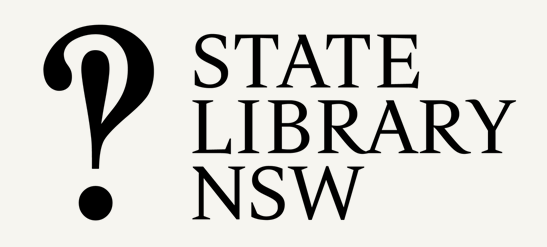ATSILIRN Protocol 7 directs libraries to deal appropriately with offensive collection materials as part of our responsibility to preserve the documentary record of Australia and make it accessible.
Offensive materials include those that contain content or portrayals of Aboriginal and Torres Strait Islander peoples that are racist, sexist, derogatory, abusive or offensively wrong. Many of these are historical in nature and contain viewpoints or language that may not have been considered offensive at the time but are now, such as references to Aboriginal people as ‘full-blood’, ‘darkies’ or ‘gins’; cartoons and caricatures; and staged photographs.
Appropriate handling doesn’t mean censoring this material or pretending it doesn’t exist in our collections. It involves being aware of its existence in our holdings and treating it with a measure of sensitivity. This may involve making users aware of potentially offensive content before they view or read an item, such as warning text on a catalogue record or a sign at the entrance of an exhibition.
As with all ATSILIRN protocols, Protocol 7 emphasises the importance of consulting effectively with Aboriginal and Torres Strait Islander peoples to seek advice about offensive materials and to develop strategies to deal with them effectively.
In some cases, we have the opportunity to address offensive materials in our collections when we become aware of them. In the video below, Ronald Briggs gives some examples of offensive materials, and how libraries might deal with them.
Case studies
> Consulting with Elders to improve collection information and management
The National Library of Australia learned many valuable lessons from working with Pitjantjatjara Elders to find out more about heritage photographs in the library’s collection.
Further resources
Policies and guidelines
Guidelines for Accessing Sensitive Collections – State Library of New South Wales (2021)
“It is important for the Library to help people access information about themselves and their cultural heritage. At the same time we need to ensure that we have guidelines to protect personal information and culturally sensitive information. These guidelines include information on how to identify these collections and how to go about seeking access.”
Aboriginal and Torres Strait Islander collections commitments – State Library of Queensland (2019)
These commitments provide a foundation for State Library to appropriately enable greater access and use of Aboriginal and Torres Strait Islander collections.
Indigenous data – ARDC
“Data involving Aboriginal and Torres Strait Islander peoples has many legal and ethical considerations and needs to be managed and shared with care.”
National Museum of Australia: Aboriginal and Torres Strait Islander secret/sacred and private material policy (v2.3, 2019)
Words Matter: An unfinished guide to word choices in the cultural sector – Wayne Modest and Robin Lelijveld (Research Center for Material Culture, 2018)
“Words and the norms around language are constantly changing. Being aware of why and how these changes come about is important if we are to be inclusive institutions.” This guide includes a list of words, an explanation of why a particular word is considered sensitive or contested, and alternative terms that may be used.
Articles and presentations
The management of restricted Aboriginal objects by the National Museum of Australia – Davis Kaus (reCollections journal, 2008)
The National Museum of Australia holds a sizeable collection of Aboriginal ethnographic objects that cannot be placed in the public domain because of strong cultural proscriptions on their use, display and viewing. This article outlines how the museum manages its restricted collections and the mechanics of their management and repatriation.
Aboriginal histories in Australian government archives: Working with records of trauma by Kirsten Thorpe and Cassandra Willis (Los Angeles Archivists Collective, 2020)
This article shares the authors’ experiences of using government records that were “deeply racist and often contained within them atrocities and crimes against humanity” in their work with the New South Wales Aboriginal Trust Fund Repayment Scheme from 2005–2011.
List of statements on bias in library and archives description – Cataloging Lab (2023)
A compilation of statements from libraries and archives on harmful or offensive language in description and bias in cataloging.









